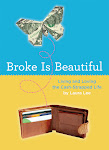From
Truthout today comes another example of moral arguement reduced to a market place equation. Why is it a bad idea to saddle the next generation with debt before they even get started in life? Because, if you do that, they can't buy as much stuff and "we," presumably, will not make as much money.
Americans with piles of student loan debt have less money to spend on anything from consumer products to homes.
And as The Washington Post points out, first-time home buyers, usually college graduates, are, or at least used to be, "the bedrock of the housing market."
But, since millions of college graduates are drowning in debt, they
can't afford to buy a home, which is killing America's housing recovery.
Meanwhile, according to a report
from the One Wisconsin Institute, the devastating effects of student
loan debt also translate into more than $6 billion in lost car sales
each year.
And, the chief economist for General Motors has even said that
student loan debt is one of, if not THE major reason why millennials
aren't buying cars.






